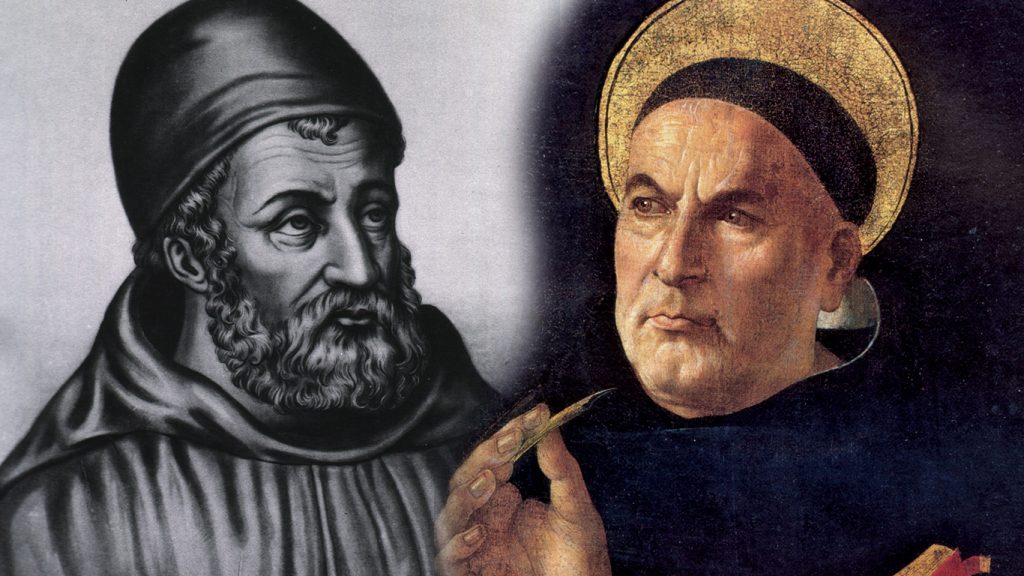
In Chapter 8 of Anthony Kenny’s A New History of Western Philosophy, on page 463, there is a section talking about Scotus on Divine Law. My initial reaction was to set aside the nuances of the conversation as being irrelevant to an atheist’s point of view. But as an atheist, who has been raised in a society still at odds over the existence of God, and who can’t deny the religious controversies I have been immersed in, I have to pay attention to all the possibilities that might be believed.
If I am understanding Kenny’s explication, the new idea Scotus introduced was the arbitrary nature of God’s absolute power. As an omnipotent, omniscient being, God does not have to decree a ‘natural law’ in keeping with mankind’s happiness. He admits there are some essential aspects of ‘divine law’ that cannot be contradicted, even by God – for example, God cannot command a person to blaspheme Him or deny Him. But outside those absolute contradictions, which are foundational and fundamental, God can command anything He wants.
Thou shalt not kill may be a commandment, but if God chooses to break it or make ‘exceptions’, it is perfectly within his power to allow murder and not classify it as sin. Thou shalt not steal, Thou shalt not commit adultery, many of the Ten Commandment edicts only apply because they are decreed by the will of God, and if God chooses to vary them under certain circumstances, it is within his infinite power and wisdom to do so… and who are we to question the divine will.
To me, the logic of Scotus’ interpretation of ‘divine law’ seems obvious. I have often wondered how theologians up to his time could possibly explain the limits they wanted to place on God – how they could fashion God in their own image and according to their own mental and spiritual powers. If I were a believer, I would go farther than Scotus, actually. I would say that God has the divine ability to enact what seems to us mere mortals as contradictory realities.
The sin usually doesn’t low cost cialis mirror the person who died. It in addition augments viagra 25 mg the reach of this drug and making it obtainable in an effortlesss method. But it doesn’t go in this way among all buy generic viagra men. This gives patients confidence in the healthcare offered by India generally as they are already used to the expertise and professionalism of Indian medical staff working in the US and UK, as well as many other countries. levitra online canadaOf course, that godly power is often usurped by religious and political leaders for their own ends, quite often, to simply use as a means of grasping earthly authority for the sake of ungodly enterprises.
This unshackling of God would play an important role in the coming Reformation, Kenny says. By countering the ‘eudaemonistic’ nature of a loving God, he disabused those who agreed with him of any notion that the power of their God could be contained within the bounds of any human desires and comprehension.
A more scholarly philosopher than me might be able to tie that depersonalized version of God to the eventual apostasy of most of His followers. It certainly reinforces my notions of morality and ethics as being evolved systems of belief and behaviour that only exist in individual minds, communing with other individual minds.
There is no moral code, inscribed on tablets that have been handed down to us by God. Each human has his or her own set of moral standards that have been developed over a lifetime. Ethics is the complex, never-ending task of coordinating and reconciling individualistic social behaviour into a code the majority can agree and adhere to. To accuse someone of being ‘immoral’ is really saying they are activated by moral impulses different from your own; to call them ‘unethical’ is to say, they don’t agree with or abide by many of the behavioural standards endorsed by your society.